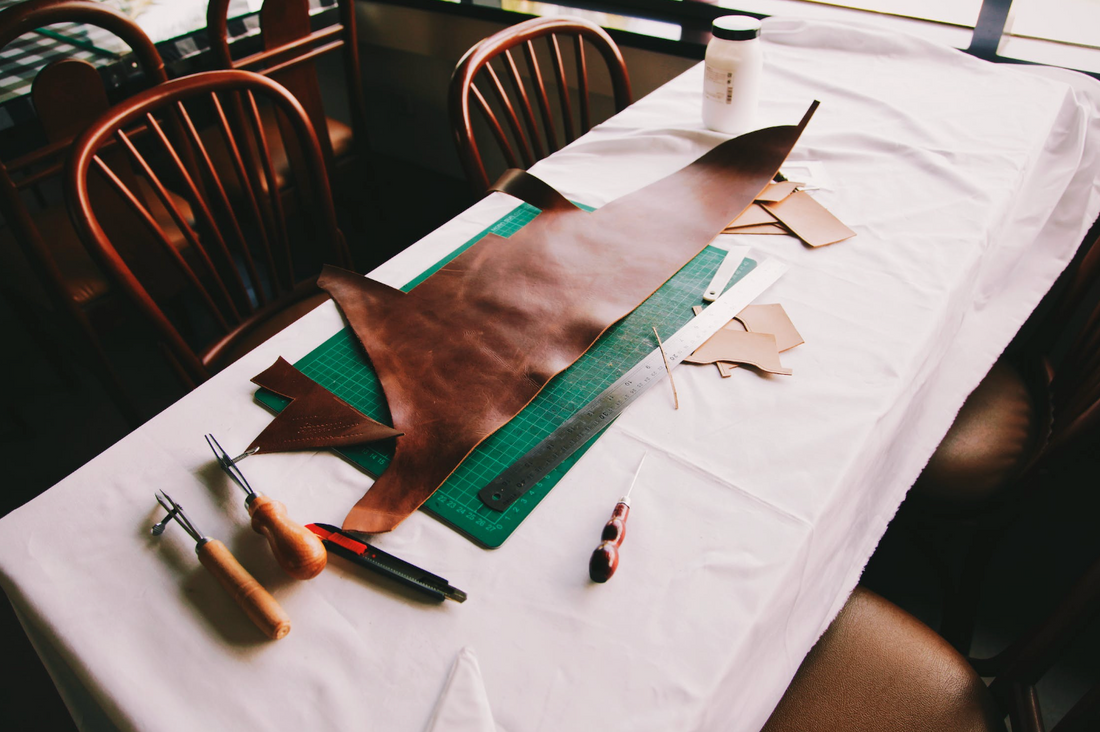
Is Leather Ethical? Our Stance & Perspective
Share
One of the staples of Ravenback Supply Co. is leather-based goods...and Holy Cow, is there a lot to unpack when it comes to the question of ethical leather!
The question of whether leather is ethical is a complex and debated topic that involves considerations related to animal welfare, environmental impact, and personal values. Different individuals and ethical frameworks may lead to differing conclusions. We acknowledge that when it comes to leather, "it's complicated." Here are some key points to consider:
-
Animal Welfare, Ethics & Sustainability: Leather is typically made from the hides of animals, most commonly cows. Concerns about the ethics of leather production often center around the treatment of animals in the leather industry, including issues such as factory farming, living conditions, and slaughter methods. It's worth noting that not all leather is produced in the same way. Some producers and brands prioritize sustainable and ethical practices, such as sourcing hides from animals that were raised for meat consumption and using more environmentally friendly tanning processes.
-
Environmental Impact: Leather production can have significant environmental consequences, including deforestation, water pollution, and greenhouse gas emissions. The tanning process, which converts raw hides into usable leather, often involves chemicals that can be harmful to both the environment and human health. While these toxic practices are not allowed in the US and parts of Europe, it is still allowed in Asia. Vegetable-tanned leather is our go-to, as it doesn't include toxic chemicals from the traditional methods.
-
Alternatives: In recent years, there has been a rise in the popularity of alternative materials, such as synthetic leathers, which aim to mimic the look and feel of traditional leather without using animal products. Synthetic leather is typically made from various materials, such as polyurethane (PU) or polyvinyl chloride (PVC). Some argue that these alternatives can be more ethical in terms of animal welfare and environmental impact.
While synthetic leather doesn't involve the direct use of animals, its production can still have environmental implications. The manufacturing of synthetic materials often requires the use of petrochemicals and energy-intensive processes. Additionally, the disposal of synthetic materials can contribute to environmental waste issues, as they may not biodegrade as readily as natural materials.
-
Cultural and Traditional Considerations: Leather has been used by humans for thousands of years and is deeply ingrained in various cultures and traditions. For some, the use of leather may hold cultural or historical significance.
-
Personal Values: Ethical decisions often depend on an individual's personal values and beliefs. Some people may prioritize animal welfare and choose not to use any animal-derived products, including leather, while others may make choices based on other factors such as practicality, tradition, or personal comfort.
We acknowledge and understand that many animals live a traumatic life if grown for the industrial meat industry. Leather often comes as a result of that meat industry. The contemporary system is a business, and people aim to make as much money as they can.
Our goal is to start sourcing leather from ethical businesses where it can be proven as cruelty-free. We also strive to use recycled leather where possible. Recycled leather not only saves discarded leather waste from going into landfills, but it also decreases the amount of new leather being made.
For all pieces, we take the time to connect with and honor the animal during our crafting process. Britt energy heals all of the leather to help reach the animal and thank it in the afterlife.
We can't change the leather manufacturing process and supply chain over night, but our goal is to find the most sustainable practices we can along the way.
Ultimately, whether or not leather is considered ethical is a subjective matter that depends on one's own ethical principles and the specific circumstances of leather production.
